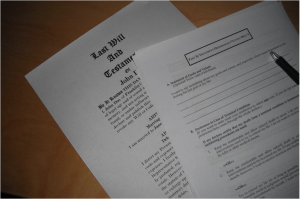A Will is a crucially important document for every person, regardless of age, wealth or personal circumstances.
People commonly dismiss the idea of making a Will, or put it off, as they deem it unnecessary or too difficult. However, dying without a Will, no matter how simple you believe your affairs to be, can make things harder and more expensive for your family and can result in years of stress and conflict.
Everyone should have a Will
While having a Will is particularly important for people who own assets, have a spouse or children, or have complicated circumstances due to mixed families or business structures, everyone should have a Will in place. This is because a Will:
- provides security and certainty;
- can simplify distribution of your estate;
- allows you to provide specific gifts to certain people or ensure that particular people do not inherit from you;
- allows you to express other wishes, such as burial instructions and conditional gifts; and
- appoints someone you trust to manage your estate.
A Will can also provide significant tax savings and asset protection. By creating appropriately drafted trusts for your beneficiaries, you will allow them to take their inheritance with minimal tax consequences. You will also protect the wealth that you have accumulated for future generations of your family, rather than seeing it divided in divorce proceedings or wasted.
 What happens if I don’t make a Will?
What happens if I don’t make a Will?
If you do not make a Will, your property is distributed in accordance with the laws of “Intestacy”.
These laws do not take into account your personal wishes and instead distribute your estate according to a formula; for example, if your partner survives you but you have no children, your partner is entitled to the whole of your estate, and if you have no surviving relatives at all, your entire estate passes to the government.
Dying without a Will in place may also result in undesirable tax consequences, especially if your estate is a large one. This is because, although there is no inheritance tax in Australia, your beneficiaries will pay tax on any income that their inheritance generates (for example, rental income or interest on a bank account).
Also, as your beneficiaries will receive their inheritances in their personal names and not via a specially drafted trust, your estate may also be vulnerable to third party claims or wastage.
Making a Will
Making a Will doesn’t have to be difficult and, depending on your circumstances, a Will can be drawn up fairly quickly.
Also, a Will is not set in stone; you can change it if your circumstances change (for example, marriage or the birth of a child), or if you simply change your mind about something.
A Will is even more important in this day and age when we all have digital assets to take into account. Find out more here.
By the Private Wealth team at Chamberlains Law Firm:
Vik Sundar
Practice Leader – Private Wealth
E: vik.sundar@chamberlains.com.au



Recent Comments